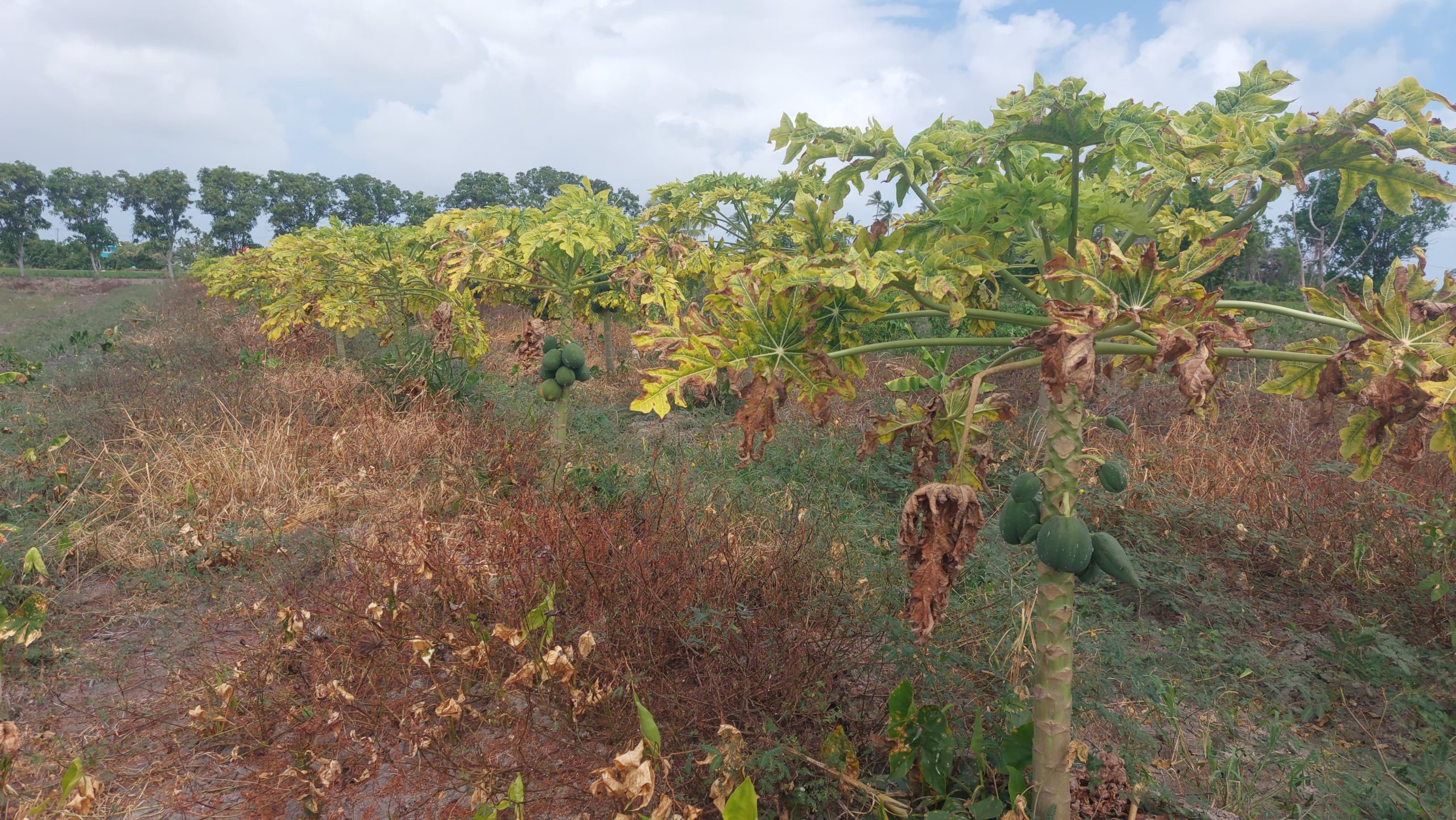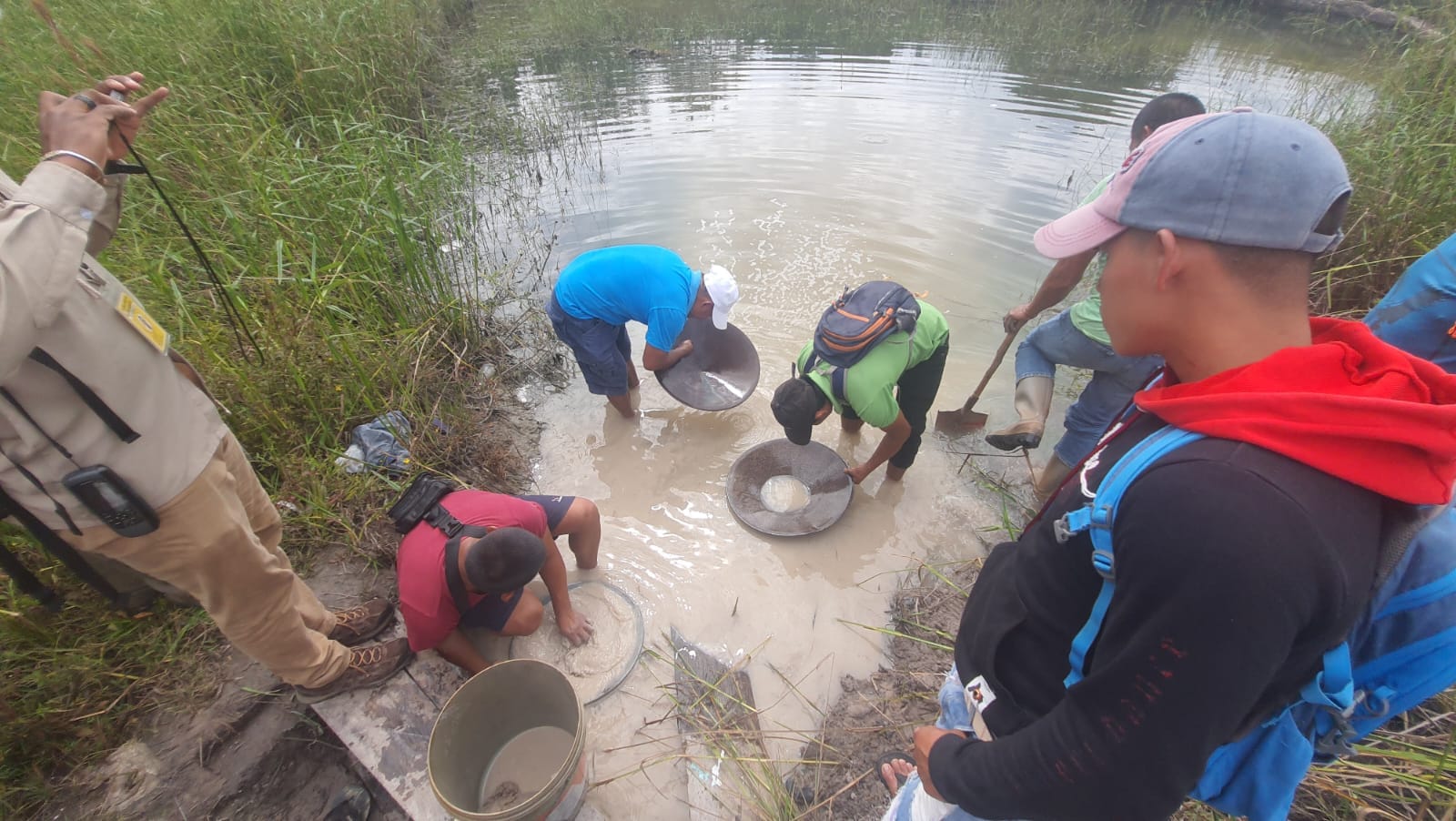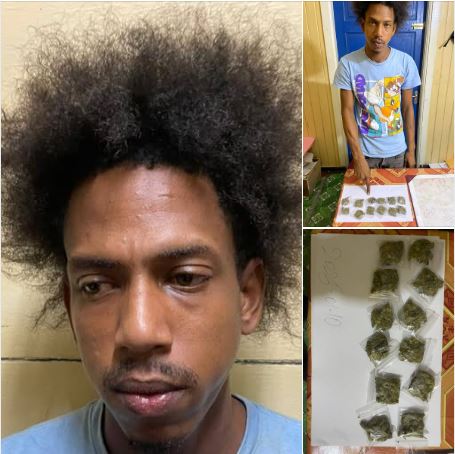

By Andrew Carmichael
The use of weedicides by rice farmers in sections of the Black Bush Polder, Corentyne in Region Six (East Berbice-Corentyne), homestead is affecting cash crop and fruit farmers who say the chemicals are killing their plants.
Some of those farmers are calling on the Agriculture Ministry to intervene.
One such farmer is Samuel Ledra, who came to Mibicuri as a child in 1962 and has been farming for the past 40 years.
Currently, the cultivates vegetables and fruits. The leaves of the pupa trees which he recently planted have all turned yellow.
“Two weeks ago, the young man sprayed his rice when I was not at home. I told him that I was smelling it because the chemical was still in the atmosphere. One week after, I see the (papaya) trees start to yellow. These are young pupa trees, I have one hundred. This is an investment that I made because now I am getting old and I can’t do that much cash crops so I am resorting now to fruit trees. These are young pupa trees that I now put down; I will lose all of that because once the chemical hit it, there will not be much production. So, should I sue the government that is allowing rice here or should I sue the farmer?” the 65-years-old farmer questioned.
When the Black Bush Polder scheme was opened in 1952, as part of a broader effort to enhance agricultural production in the region, particularly for rice cultivation there were almost 10,000 families throughout the four polders of Lesbohelden, Mibicuri, Johanna and Yakasary. Now there are reportedly less than 2000 families.

Ledra said he might have to pack up and leave as well if this situation persists.
“Right now, I am very despondent with what is going on here. It seems like I have to do like the rest of the people in this community – pack up and leave. Who will compensate me, I have a foundation that I laid…,” he lamented.
The chemical being used by many rice farmers to remove the weed from their rice fields is a systematic weedicide but it also affects soft crops.
The National Agriculture Research and Extension Institute (NAREI) have been contacted and officers have since visited.
But many of the rice fields are situated alongside cash crops and those farmers say there they are losing money.
Sabrina Jainarine, a cash crop farmer of Mibicuri South, said her ocro plants have also been affected by chemicals used by a rice farmer who has his plot just inches away from her farm. She says the farm is her only source of income.
“My crop got damaged and we want action to be taken against this person.”

“Cash crop farmers in this area suffer a lot because they allow rice to be planted in the homestead and they are destroying us and we are getting no satisfaction,” Jainarine added while noting the difficulty cash crop farmers experience accessing water in areas where rice is being cultivated.
However, it is not only cash crop and fruit farmers who are being affected. Livestock plays a major role in the local economy with many vegetables and fruit farmers also rearing livestock.
One such farmer is Titus Clark, who laments that vapour in the atmosphere also affects his family.
“Last week one of the farmers sprayed (chemicals) and my wife started vomiting. Rice is planting a stone’s throw away from where I live. We need some help with what is going on. We need the relevant authorities to see what they can do about the spraying in the residential area.”
Clark said that he contacted the Black Bush Polder Neighbourhood Democratic Council, regional officials, and even the Vice President on the issue.

Meanwhile, Dhanraj Sookram, who is a former councillor on the BBP NDC, also said that during his stint at the NDC, residents had raised the issue with the NDC but nothing happened.
“The NDC don’t have any say in it, because the land was given to live and to plant and they say they can’t tell people what to plant.”
According to the former councillor, people are only allowed to cultivate vegetables and fruit trees within the residential area with other sections designated for rice cultivation.
Meanwhile, Savitry Mohabier, a housewife and mother of four said the spraying takes place at least twice per week. She said she recently had to visit the hospital after being affected by a chemical used by a rice farmer in close proximity to her home.
“The spraying is not nice, sometimes you vomit when they spray,” she noted.






